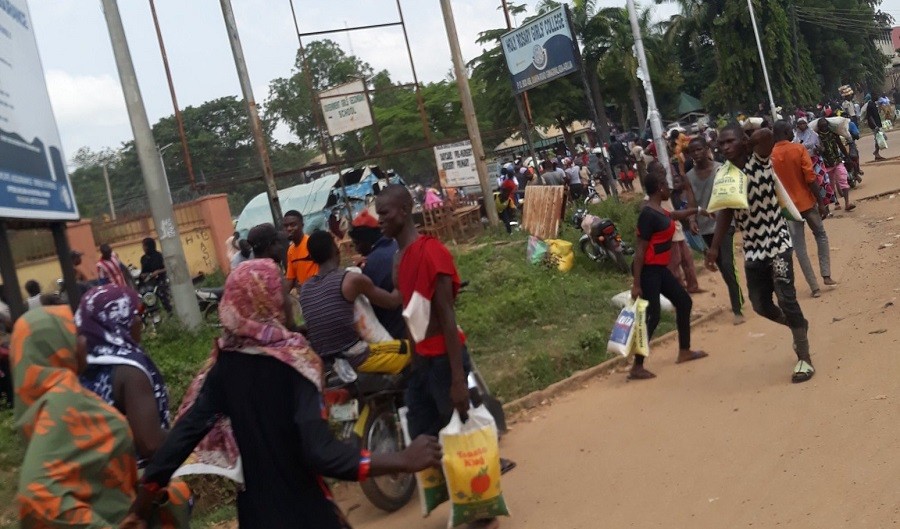Nigerians In North Central States Want Govt To Give Business Grants, Not Poverty Alleviation Handouts, Report Shows
Research featured by the Central Bank of Nigeria has revealed that Nigerians in the North Central states are no longer interested in the Federal Government’s poverty alleviation policy preferences of giving out handouts.
The research sampled 1,600 people across four North Central states of FCT, Nasarawa, Kogi and Niger.
Advertisement
The research titled ‘Poverty and Poverty Alleviation Policies in the North Central Zone of Nigeria’, conducted by Olotu Gloria Ese, the Director of Finance and Investment, TETFUND, also revealed that nepotism, cronyism and lack of political will have pushed a lot of people in the region into poverty.
Out of the 133 million Nigerians living in multi-dimensional poverty, according to the National Bureau of Statistics, 20.19 million are from the North Central.
According to the study, numerous poverty alleviation programmes of the Nigerian government do not reach the target people and have been ineffective in the area of job creation.
The study gave five proffered policy areas which include: Distribution of free food items; Distribution of free educational materials; giving grants to small business owners; provision of free health service and payment of welfare packages to the unemployed.
Advertisement
The respondents ranked the Distribution of free food items least of their priorities, followed by the payment of welfare packages to the unemployed and the provision of free health services.
However, they voted for giving grants to small business owners and the distribution of free educational materials as the top of their preferences.
The research said, “Poverty Alleviation Policy preferences indicate that the people are not as interested in ‘handouts’ such as distribution of free food or payment of welfare packages as in support for education and grants to small businesses.
“This implies that in the fight against poverty people recognize that education holds the key to lifting them out of poverty.
“Lack of education can also be directly linked to the issue of unemployment because without basic education there is a limit to employability and the ability to develop any high-level skills; education remains key.”
Advertisement
In 2022, the FG spent N400 billion under the National Poverty Reduction and Growth Strategy (NPRGS), which covers certain welfare schemes including the Government Enterprise and Empowerment Programme (GEEP), Conditional Cash Transfer, Farmer Money, and Market Money.
In February, Sadiya Farouq, Minister of Humanitarian Affairs, Disaster Management and Social Development said the FG invested the sum of N1.3 trillion to improve the lives of vulnerable Nigerians through its National Social Investment Programmes in the last seven years, from 2016 to 2022.
The country plans to cut funding for fuel subsidy and plans to spend $800 million facility recently secured from the World Bank for post-petrol subsidy removal palliative to poor Nigerians.
Nigeria’s register for the poor has about 10 million households which is an equivalent of 50 million Nigerians.



